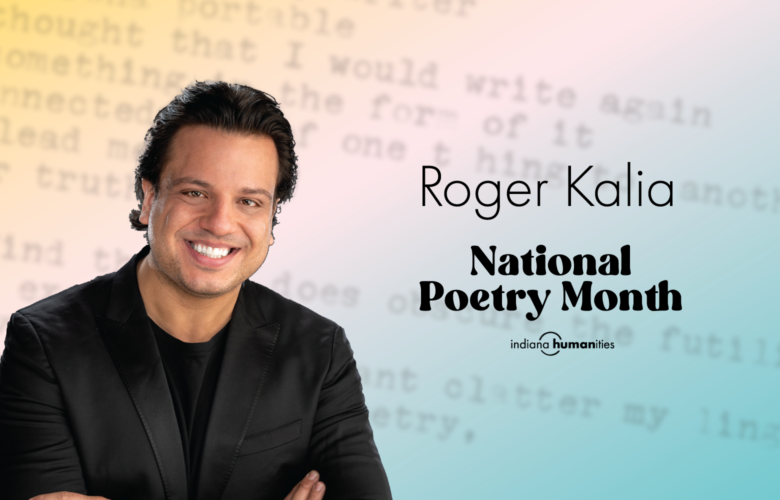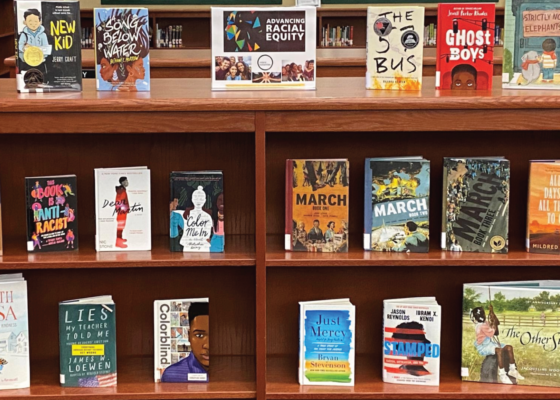National Poetry Month — Roger Kalia
April 29, 2022Roger Kalia shares how music help us cultivate hope and community in times of crisis.
Last year, in honor of National Poetry Month, I asked several past Indiana Poets Laureate their thoughts about the importance of Amanda Gorman’s inauguration poem to the revitalization of American poetry and to the health of the nation. This year I decided to pose a larger question to four Hoosiers working outside the discipline of poetry:
How do the Humanities help us all cultivate hope and community in times of crisis?
Here’s the fourth and final post I received, from Roger Kalia, music director of the Evansville Philharmonic Orchestra, who approached it from an artistic perspective.
Matthew Graham
Indiana Poet Laureate
I believe that music has the power to bring joy and peace in times of crisis. Looking at the history of music as a part of human culture, there have been countless examples of the impact that orchestral music has had on our society. For example, in the moments following the assassination of President John F. Kennedy, the great conductor Leonard Bernstein was quoted as saying, “Our music will never again be quite the same. This will be our reply to violence: to make music more intensely, more beautifully, more devotedly than ever before.” After the 9/11 terrorist attacks, the conductor Kurt Masur led an immensely moving performance of the Brahms Requiem with the New York Philharmonic, which was dedicated to the victims of that horrific day. In music, we find a universal language that has the ability to heal and unite people.
Hans Christian Andersen is quoted as saying, “where words fail, music speaks.” I have found this to be incredibly true over the past few years, particularly during the Covid-19 crisis. In my capacity as a conductor, I have seen firsthand the role that music can play in helping us cultivate hope and community in times of crisis. During the start of the pandemic, I was able to watch outdoor concerts performed in people’s yards and driveways to bring peace and comfort.
In Evansville, we performed Pop-Up concerts throughout the city with different chamber ensembles featuring musicians from the orchestra. Seeing people from different backgrounds and ages come together was incredibly moving and comforting. It’s a similar experience in a concert hall when listening to a great symphony orchestra perform.
Every time I open a score, I am reminded of the genius of the composers who wrote these great works. Beethoven is one of my favorite composers to conduct because of the universal message in his music. Many of the great composers often faced hardships and personal struggles. I cannot think of any other conductor who suffered more than Beethoven. Beethoven was only 28 years old and at the peak of his fame when he began to lose his hearing. Although he did not become entirely deaf till his last years, the awareness of his deteriorating condition must have been torturous. He became depressed and even suicidal. He wrote of his inner torment in a series of letters known as the Heiligenstadt Testament and how only his music held him back from taking his own life.
This experience of suffering — and the struggle to overcome it — is evident in all of his music and imbues it with a deeply human spirit. A spirit of hope moves every bar of Beethoven’s symphonies, especially the Fifth. The opening bars of the Fifth Symphony have been compared to Fate knocking at the door. These four notes or hammer blows form what is perhaps the most striking opening of any musical work in history. The conductor Nicholas Harnencourt suggests that through this opening Beethoven asserts that “the world we have is no good. Let us change it! Let’s go!” We are taken on a journey throughout this 30-minute symphony, which begins with moments of indecision and despair and eventually concludes in a glorious blaze of triumph.
At their core, the humanities are about the human experience, and no life or culture is complete without music. It is an expression of ideas and emotions, and through it, we can seek to understand both ourselves and each other. In both creating and listening to music, we share space and time, and we are reconnected and reminded of our shared humanity and the gifts it brings us.



